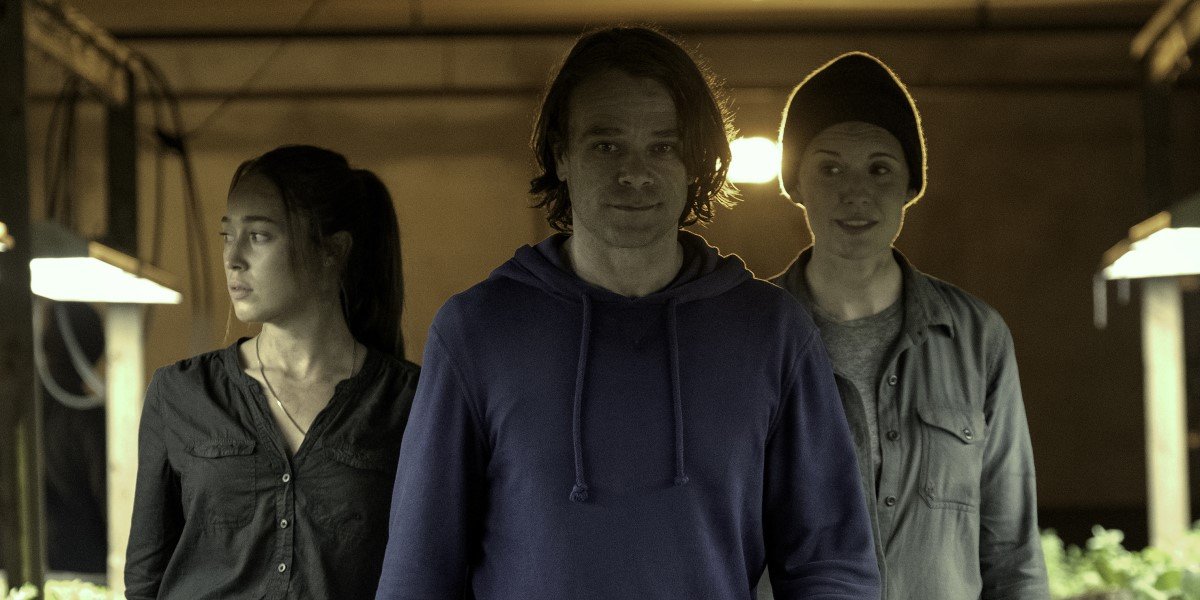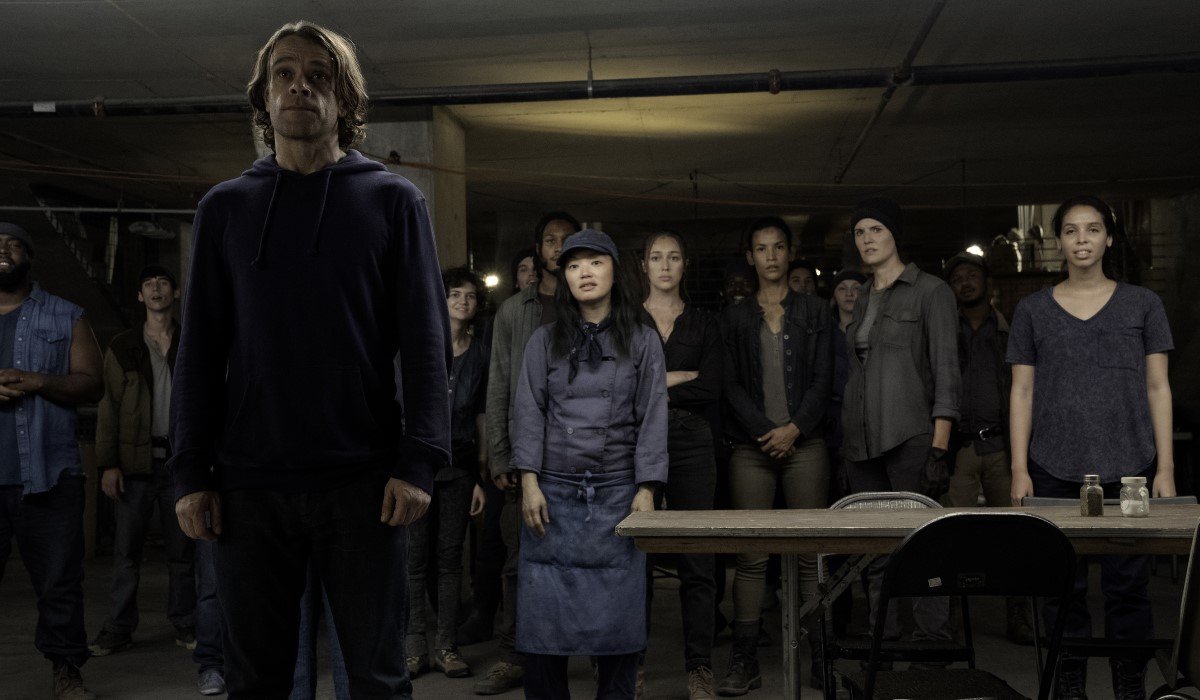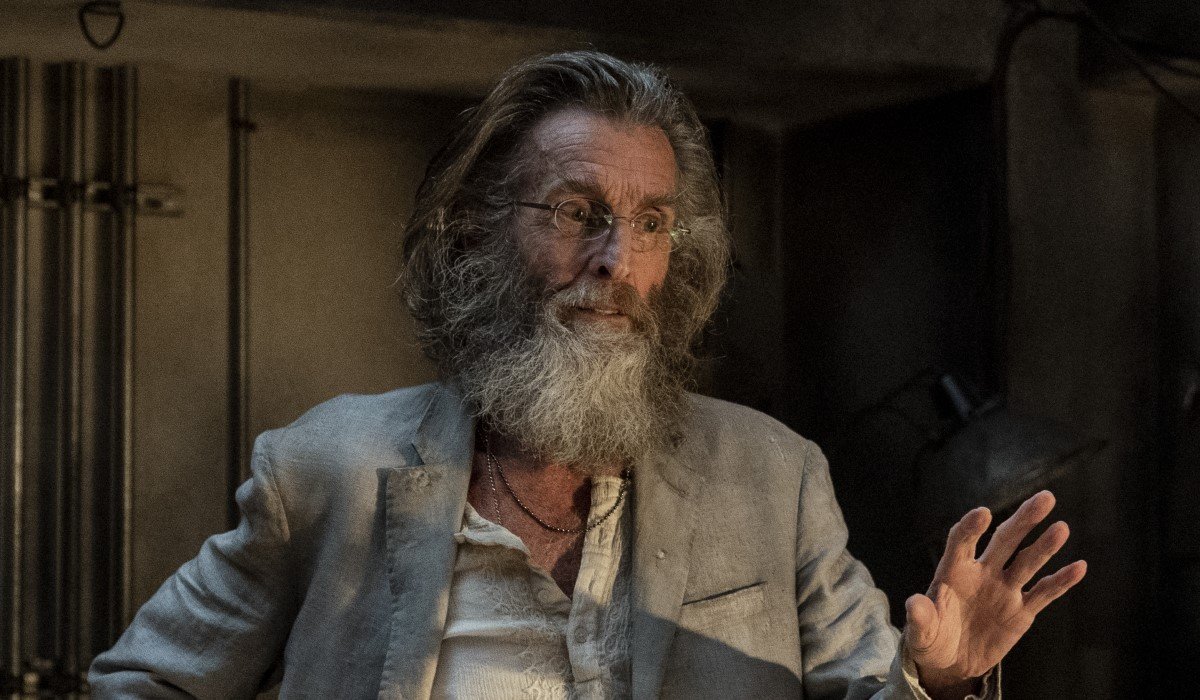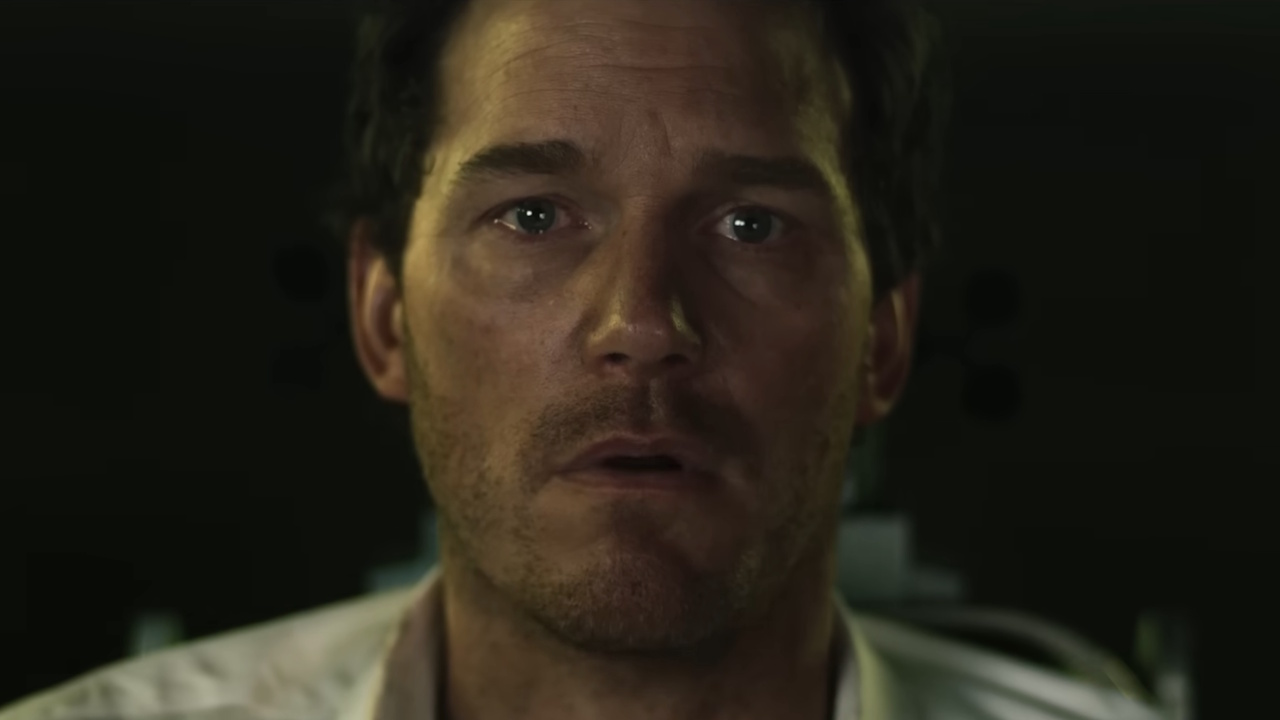Fear The Walking Dead's Nick Stahl Explains New Villain Teddy And His Underground 'Cult'

Major spoilers below for Fear the Walking Dead's latest episode, so be warned!
Despite Fear the Walking Dead shifting away from the anthological episodic approach that made the first batch of episodes so distinct and acclaimed, I'm still convinced Season 6 is the zombie drama's best run yet. Episode 11, "The Holding," definitely kept those views intact with its long-awaited introduction to the villainous "End Is The Beginning" group and its bearded leader Teddy, as portrayed by Smallville vet John Glover. Like some of the best antagonists in the Dead franchise, this cult-esque group isn't 100% evil, even if it's fueled by ideas that initially sound totally batshit.
Ahead of Episode 11 hitting AMC and its streaming service AMC+, CinemaBlend spoke with new Fear the Walking Dead recruit Nick Stahl, of Carnivale and Terminator 3 fame. Here's what he told me when I asked for his first impressions about the new group:
Oh yeah, the group, the cult. You might call it that. We have our own thing going on underground, a little club. Truthfully, I was really happy when I finally read the scripts to see that it had sort of a distinct flavor to it, to these episodes. And it kind of switched the pace up, maybe, from the show up until this point.
Considering how much set-up went into this episode-long introduction, I was quite relieved that even though Alicia did her best to fuck the underground group's world up, they were definitely proven to be more than a one-and-done threat by the end of the episode. Now let's dive deeper into their overall philosophy!

Why Teddy's Group Is "Somewhat Attractive" To Nick Stahl
Even though Fear the Walking Dead viewers weren't privy to much information about the new group ahead of "The Holding" airing, fans know what the deal is when it comes to large groups of characters who appear to be doing just fine in the post-apocalypse. Since, you know, nobody is doing just fine in the post-apocalypse. So while Nick Stahl's Riley, Chinaza Uche's Derek and the other new characters do not appear to be either total villains or victims at first glance, that obviously gets upended as the story moves forward. But even still, nobody's coming across as a total monster, and that dubious balance played a lot into how Stahl approached the wrong from an acting standpoint. In his words:
For me, I sort of try not to [moralize it]. It's hard if you are looking at your character from a standpoint of 'this is good or bad' or 'this is black or white.' Because the fact is, as with a lot of cults - I believe with a lot of groups like this - I don't think they necessarily think they're doing harm, or doing anything bad. The group has a distinct philosophy and they're defensible in a way, given that the world is in ruins, basically. The main characters kind of encounter these guys, and they seem to be self sustaining. They have camaraderie. They have food and shelter and all these things, and they have sort of a very purposeful outlook. So, you know, given the alternatives, I always kind of viewed it like if I was to encounter a group like this at a time like this, what they have to offer is somewhat attractive.
I'm sure most of the people reading this, and the majority of Fear the Walking Dead fans in general, would like to believe they'd keep to virtuous high roads in times of chaos and panic. We'd all love to be the Johns and the Junes of the world - or at least the not-dead versions - and there definitely would be a lot of people just like that out there if the world ever fell to a zombie outbreak. But there would absolutely also be groups just like Teddy's, where well-minded survival instincts become overtly tainted with various forms of mental degradation, to the point where you have a room full of deluded people staring at a flora-covered walker as if it's Christ on a cross.
Still, the reason why groups like that are successful is partly because their leaders often do sincerely have members' best wishes in mind, at least at first. To that end, Nick Stahl says this is basically the case with Teddy's second banana Riley, and he also pointed out how Teddy's group compares to similar real-life groups by way of its recruitment process. In his words:
Your Daily Blend of Entertainment News
My character, definitely, too - he's not twirling his mustache - he's somewhat personable and inviting and charming, even. I have to look at it like, this guy wasn't born into this. These extreme circumstances lead people to do all kinds of crazy stuff or, you know. I would say that's one element of the show, and the mythology of the show, that really appeals to me, actually: you can kind of think you know how you'll react if all of these fantastical things were actually to happen, but I don't think you do. It's like, you might end up with a group that acts a certain way, or you act outside of yourself out of fear. This group, I think, kind of grabs people when they're vulnerable, when they're scared. And I don't think that's too off base for [real-world cults]. It's not unrealistic.
When first learning about the underground group, it wouldn't be outlandish to compare the grow-work-survive ethic to that of a traditional commune. And for the most part, Nick Stahl's Riley doesn't exactly seem like he's trying to lie or fool Alicia's group upon their arrival, and it's mostly after the show's protagonists start dismantling the group's settlement and ideals that Riley and others become more threatening. Of course, it all sounds a lot more suspect after the room full of walkers is discovered, and after learning they were indeed responsible for Tank Town's destruction.

Why Teddy Has So Many Followers
I don't want to make any petty generalizations here, but I think we can all agree that John Glover's Teddy looks like he just woke up from leading a cult of Rip Van Winkle cosplayers. So while I think he definitely looks and acts the part quite naturally, it's mildly astonishing that Teddy convinced so many people to stick around instead of calling him a kook and going on about their post-apocalyptic days. Of course, Teddy's underground accomplishments have far more to do with his thoughts than his wild eyes and bushy facial hair. Below, Nick Stahl explains what makes Teddy such a good leader.
Well, I think he's certainly smart; he's articulate. He's got a very sort of original style. And I think he seems to have learned how to kind of seduce followers in a way and create loyalty amongst his people. There's a certain truth to what he's taught, to what he's saying, and he almost sounds like he's got a certain hippie philosophy that's attractive. It makes sense. He sort of talks about human beings being part of the earth, and so he has this whole organic philosophy and viewpoint. He makes, I would say, the idea of death less scary. Because I think that's one thing a lot of these people share is this intense fear of death that's at the core of the whole show. So if you encounter somebody who maybe reframes death, that looks at it more as something natural that actually helps people and that possibly even is like a rebirth. Again, that's a pretty attractive quality, I guess. He becomes kind of the fearless leader, this anti-hero. So yeah, I would say those are the qualities about about Teddy that maybe attracted Riley to begin with.
Nick Stahl really does hit the nail on the head with that explanation.The biggest draw-in factor for these group members likely isn't the hot food, the concrete living situation or the sense of community - not that any of those hurt - but rather Teddy's way of making the concept of death less intense and harrowing. In the end, that might very well be what people want the most, and if it comes wrapped in double-speak and hippie-leaning mantras, so be it.
Fear the Walking Dead airs Sunday nights on AMC at 9:00 p.m. ET, and we're hoping to see a lot more from Rubén Blades' Daniel Salazar getting his mind right while settling down in Lawton with Colman Domingo's Victor Strand, since that's not a combination that seems destined for peace and tranquility. And I'm also highly curious whether Alicia's multiple references to her mom are any indication that Kim Dickens' Madison Clark will somehow still make a return.

Nick is a Cajun Country native and an Assistant Managing Editor with a focus on TV and features. His humble origin story with CinemaBlend began all the way back in the pre-streaming era, circa 2009, as a freelancing DVD reviewer and TV recapper. Nick leapfrogged over to the small screen to cover more and more television news and interviews, eventually taking over the section for the current era and covering topics like Yellowstone, The Walking Dead and horror. Born in Louisiana and currently living in Texas — Who Dat Nation over America’s Team all day, all night — Nick spent several years in the hospitality industry, and also worked as a 911 operator. If you ever happened to hear his music or read his comics/short stories, you have his sympathy.
